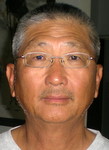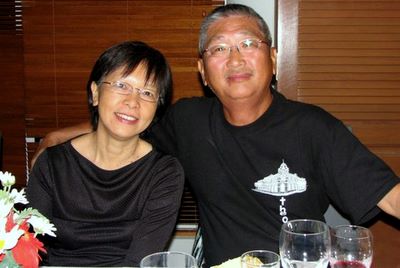This article follows from CHENG HUANG LENG: 'You can retire only if you meet 4 conditions'

MANY PEOPLE have posed me questions like the following. My responses are given below:
Q: Any problems if I share your article with my friends?
A: No problem! Do feel free to share my thoughts with any person whom you feel would benefit. There is no need for acknowledgement or to ask me for prior permission.
Q: Should I not create a "passive" income so that even when I am not working, there is some money coming in?
A: I think it’s neater to save enough money to support the lifestyle of our choice WITHOUT depending on (or expecting) any other sources of income during retirement. Any such “income” that comes your way -- e.g. rent from property, dividends from shares, and money from your kids or the will of your favourite auntie -- should be treated as a bonus that could be used to pay for your “dream” list. A dream list comprises items that you would dream of doing if you got the money! A bucket list should comprise items that you can already afford to do before you kick the bucket.
Q: How much is “enough” to save for retirement?
A: Enough is a relative word - hence no one can agree to a number. I am told that Aristotle Onassis used to get his crew to fly his personal jet from London to Paris every morning to buy a loaf of bread for his breakfast! For him, I suppose a million a month would just about meet his living costs! On the other hand, I know of many who are quite happy living in Singapore on $1,000 a month. You can live comfortably elsewhere on $200 a month. For my current lifestyle, my wife and I spend about $36,000 annually.
Q: It’s good to carry on working and get paid even after 55 or 60. However, the stress that is to be overcome can probably do a lot of damage to the ageing person - true or false?
A: Stress is good if you enjoy what you do. It’s bad otherwise and the damage to you is part and parcel of your job. Thus, be clear and honest with yourself as to why you continue to work when you can afford not to.
Q: I plan to open a small fishing tackle shop so that my spouse and I can spend time in the shop after we retire.
A: To me, true retirement activities are those where you spend your savings instead of make money. Thus I would consider operating a shop like yours a "hobby" -- meaning you do it for the fun (or pain?) and without expecting any monetary returns. In fact, it is even better if you expect to lose all your money on the venture! If you expect to make money, then it should be treated as a business. In that case, you have not yet retired.

Q: Should not one also keep spiritually healthy? So, may I suggest that one day (usually Sunday) be kept for the Lord?
A: A weekly spiritually stimulating activity would be a great idea. Renewing one’s faith is one such activity.
For those who are not religious, it means identifying an activity that will help you renew (and/or reinforce) your commitment to your set of beliefs, principles and values. They are important because they are your anchor points.
You lose them and you will lose purpose and meaning in life, etc. One good way is to read (books and/or articles) and reflect. Those not keen on reading can always reflect somewhere quiet e.g. in a park, among trees or in a cave!
Q: I enjoy my work, I feel needed and I am getting paid. Why should I retire?
A: I agree that you should not retire, BUT you cannot work forever UNLESS you own the business! Thus if you are on a year to year extended contract, you should plan for the day when you are not needed anymore!
Q: I was planning to retire when my youngest son completes his studies and get a job etc but life threw a few surprises at us. I am 48 this year and will be expecting one more child in January (it was an accident!). Looks like I will have to shelve the retirement plan for a while.
A: You can still retire as planned. A child does not require much money to bring up if you DIY (i.e. no maids), use recycled toys and stuff (just ask our mariners) and let him grow at a normal pace (i.e. no mind camps and piano lessons). Let him enjoy his childhood fighting with other kids, climbing trees, catching spiders and getting into trouble!
And when you do it yourself, you will not have time for any of your routine retirement activities till he is able to fight with other kids without your help. I help raise my grandson 5 days a week from 7.30 to 7.30, after which I am exhausted and would collapse at 8.30 pm and sleep like a baby till morning. I am mentally challenged thinking of things to do to keep him from being bored!
By the way, you should get your older children to share the household chores and, if they are working, to even contribute monetarily to the “accident” project fund.
Q: Can you arrange for "potential future retirees" to form a "kaki club" - especially mariners who can share the same passion and interests and keep in contact with each other?
A: Yes I can help form SIGs (Special Interest Groups) and that’s the easy part. The hard part is for you to develop and list your “passions and interests”.
The following suggestions/ideas were received. Thank you for sharing.
- Perhaps one thing a retiree can do is to write his own life story and pass on to his children.
- Retirees should mix with younger people and not only with retired peoples. From experience, I know that retirees who see their "kakis" kicking the bucket one by one, slowly become withdrawn as they start to fear for the day of their going. Unless, one is spiritually prepared, the fear can be overwhelming.
- One must feel needed. You can be needed by becoming someone’s "kaki" or a guardian.
- One activity to pursue is re-educating yourself and then you pass it on. You will be busier than working full time but every minute will be fruitful and joyous. This is due to meeting more and more people of all ages and kind. The really wonderful thing is you can pull back anytime you feel like it and to fuel it with unlearning, relearning, looping back to those who want to know. And of course some of the wonderful people you meet actually provide sustenance too.
I like to thank those who posed the above questions and those who wrote to share their retirement experience. They have helped to plug the gaps in my article.
Cheng Huang Leng taught Marine Engineering for 9 years before he became a Deputy Principal of the Singapore Polytechnic. After 9 years as Deputy Principal, he felt that he had enough of management and decided to return to his first love i.e. teaching. He joined Singapore Technologies in 1990 to teach and provide consulting services in quality and management. On 1 January 2000, Mr Cheng set up QMD Services to offer consulting services in ISO 9000, SQA and quality-related areas, Balanced Score Card. Leadership and Management.








a. Assuming your house value currently is $5 m. The CAGR is 7.9% per annum for the past 27 years.
b. Assuming $6 million, the CAGR is 8.6%.
c. Assuming $4 m, the CAGR is 7.0%
If I were born 30 years late and live on a salary, I would probably buy a 3-room flat and use my disposable income on my hobbies and interests. (My son does that!) It seems silly slogging for the bank for a house.
I was in Japan in the 70s and I have seen how ordinary Japanese earned more than us then BUT lived poorly. Whereas many of my British classmates lived colourful lives and on credit! Today, both have found out that their governments and banks have played them out and that they cannot live on their pensions. The villagers in the Myanmar countryside live on what they grew and were the most happy people I have met in my travels! Thus it's hard to judge who is right and who is wrong. Looking at the situation today, I would choose to live like the British, save some for a rainy day like the Japanese and remember to be thankful to be alive like the country folks of Myanmar. To avoid problems while alive, I would live within my means and try not to live too long!
One of the welcome side effects of globalisation is that if you have a marketable talent, you can live anywhere. Your country (if you got one) is only a home base!
Pre-condition #3 is to save enough to support the rest of your life i.e. without a need for significant income streams. With enough savings to draw down, your mind is free of financial worry to enjoy your retirement.
Transport is mostly by car. I clock about 15,000 km per year and the 40% went to fuel, depreciation, road tax, insurance and servicing. We eat in mostly, so the money went to the wet markets. Golf and travel are my expensive interests. My house though more than 40 years old requires little maintenance. Most of the 10% went to PUB, SingTel and property tax. At my age, there’s nothing I need from the shopping malls other than to buy replacements e.g. slippers. Thus almost zero dollars went to shopping!
My wife (she’s 62) and I are both fit (we exercise daily and do the housework without a maid) and we hardly need to visit the polyclinics. We do attend weddings, bid farewells, support some charities and waste. All the above constitute “miscellaneous expenditures."
I do not see the need to spend more as we age despite inflation. We do eat less as we age. I may have to give up golf (will be too old to enjoy the game anyway). My wife and I are budget travellers and will continue to wander till we cannot walk. My current COE runs out in 2015. My car should be my last unless our highly paid Ministers fail to solve our public transport problem by then. Any “savings” would be eaten up by inflation for sure and hopefully not by medical costs. If I got my sums wrong, I can and will downgrade though I would prefer to die before having to do so! (I have signed the AMD to authorise my doctor to switch off my life support machine should I degenerate into a vegetable).